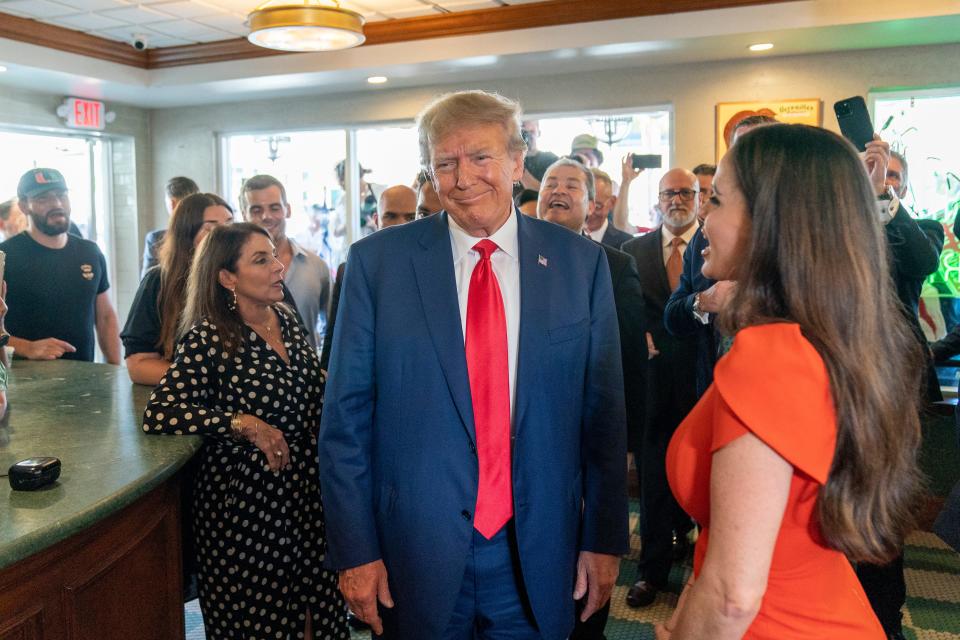Judge rejects Donald Trump's vagueness argument for tossing out Florida documents charges
A Florida federal judge rejected former President Donald Trump's bid to toss out many of the charges in his classified documents case, but left the door open for the 2024 Republican frontrunner to try again.
Trump's legal team argued that 32 of the counts in his lengthy indictment over hoarding classified documents at his private club fell under a law — the Espionage Act— that was too vague to be applied to his case. Trump is accused of illegally retaining documents after his presidency and obstructing justice.
In rejecting the Trump team's request to toss out those charges, Judge Aileen Cannon made it clear that Trump can have another bite at the apple once other aspects of the case have taken shape.

Resolving the overall question "depends too greatly on contested instructional questions about still-fluctuating definitions of statutory terms/phrases as charged, along with at least some disputed factual issues as raised in the Motion," Cannon wrote in a two-page order.
Cannon also said Trump's team had raised "various arguments warranting serious consideration" in the motion, even though she was rejecting it for now.
The Espionage Act bars the “unauthorized possession” of documents that relate to national defense when a person willfully retains the documents and has reason to believe they could be used to hurt the United States or help a foreign country.
Trump's lawyers argued the law includes "confusing and complex" phrases that, when applied to his case, violated his constitutional right to due process.
Contributing: Bart Jansen
This article originally appeared on USA TODAY: Judge blocks Trump bid to drop Espionage Act charges in documents case
